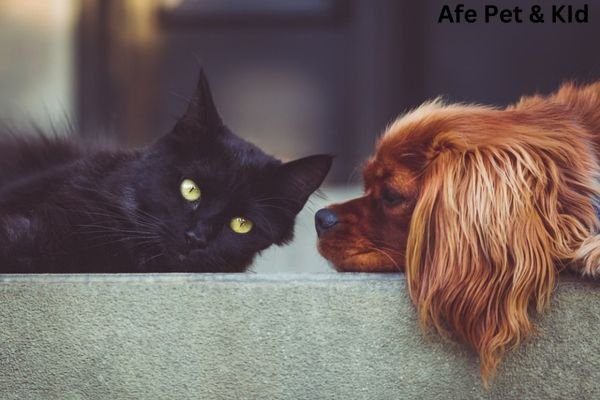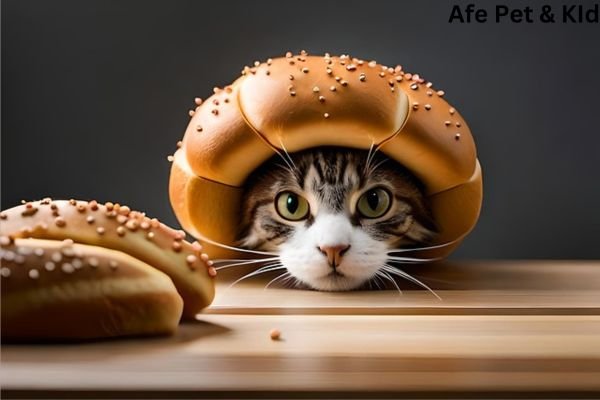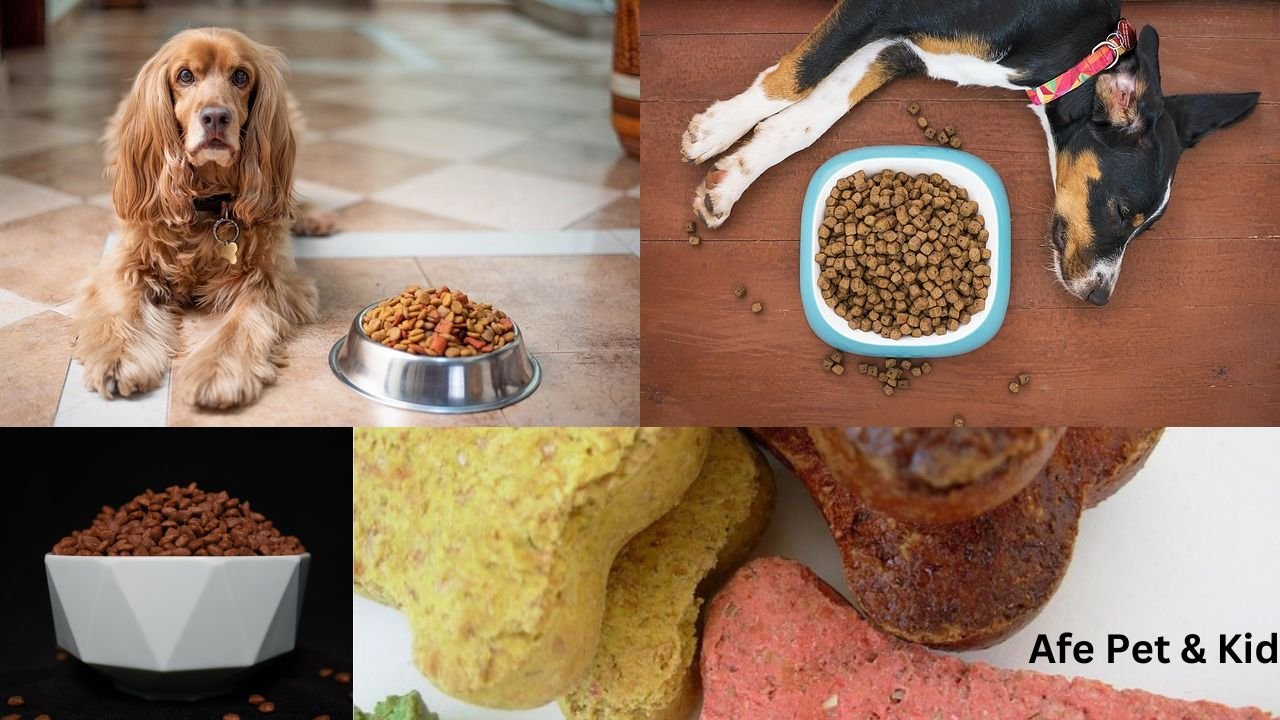Table of Contents
Introduction

In this comprehensive guide, we’ll explore the world of canine dietary habits and provide a clear answer to the ever-pressing question: “Can dogs eat cat food?” When it comes to pets, dogs are renowned for their inquisitive palates. They’ll eagerly sniff out any morsel that catches their attention, and cat food is no exception. But, is it safe for dogs to indulge in these feline feasts?
Can dogs eat cat food?
Can dogs eat cat food.? It’s a common question. The answer is Yes, but it’s generally not advisable. Explore bellow to know in details.
Understanding the Dietary Differences
Before we dive into the heart of this matter, it’s crucial to comprehend that dogs and cats have markedly different dietary needs. These distinctions can be traced back to their evolutionary histories. Dogs are omnivores, meaning they can derive nutrition from both plant and animal-based foods. In contrast, cats are obligate carnivores, relying primarily on animal proteins for sustenance.
The Dangers of Dogs Eating Cat Food
Allowing your dog to nibble on cat food once in a while may not pose an immediate threat, but there are potential hazards to be aware of. Cat food is meticulously crafted to meet the specific dietary requirements of cats, which are significantly distinct from those of dogs. Over time, persistent consumption of cat food can lead to a host of health issues in dogs.
Common Ingredients in Cat Food
Cat food typically boasts higher levels of protein and fat, which can place undue strain on your dog’s digestive system. Moreover, certain components, such as taurine, found in cat food, may not be essential for dogs and can potentially create imbalances in their diet.
Health Implications for Dogs

The ramifications of dogs eating cat food can be wide-ranging. From obesity to digestive complications and nutrient imbalances, these issues can severely impact your dog’s overall health and longevity.
Behavioral Changes in Dogs
It’s not just physical health that’s at stake. Consuming cat food can influence a dog’s behavior. They might become more territorial, irritable, or even aggressive if cat food becomes a regular part of their diet.
Signs of Cat Food Consumption
To safeguard your furry companion’s health, it’s vital to recognize signs that they might be partaking in cat food surreptitiously. Keep an eye out for symptoms such as gastrointestinal distress, diarrhea, vomiting, and alterations in their appetite.
Preventing Dogs from Eating Cat Food
Prevention is the key to ensuring that your dog refrains from raiding the cat’s food dish. Practical measures include feeding your pets separately, storing cat food securely out of their reach, or training your dog to avoid it.
Nutritional Requirements for Dogs
Understanding your dog’s nutritional needs is paramount. High-quality dog food is specifically formulated to provide all the essential nutrients that dogs require. These consist of vitamins, minerals, lipids, proteins, and carbohydrates.
Safe Alternatives for Treats
If you’re inclined to reward your dog with a treat, there are plenty of safe alternatives. These include dog-specific treats and specially designed dog food that caters to their nutritional needs and taste preferences.
Feeding Guidelines for Canines
Consistency is the key to maintaining your dog’s health. This involves serving properly portioned meals, adhering to a consistent feeding schedule, and ensuring your dog has access to fresh water at all times.
Cat Food vs. Dog Food

It’s essential to understand that cat food and dog food serve entirely different purposes. While cat food is crafted to meet the dietary needs of cats, dog food is formulated to cater to the distinct requirements of dogs. Mixing the two can lead to serious imbalances in your pet’s diet.
Addressing the Curiosity of Dogs
Dogs are inherently curious creatures, and the alluring aroma and unique taste of cat food can be irresistible to them. To ensure their curiosity doesn’t jeopardize their health, it’s your responsibility as a pet owner to safeguard them.
Monitoring Your Pet’s Diet
Regular veterinary check-ups and consistent monitoring of your pet’s diet are essential. Early detection of issues stemming from dietary indiscretions is crucial for your pet’s well-being.
Conclusion
In conclusion, while it’s tempting to indulge your dog with a taste of cat food, it’s generally not advisable. The substantial differences in the dietary requirements of dogs and cats can lead to various health problems in canines if they regularly consume cat food. Always consult with your veterinarian to ensure your dog’s diet aligns with their specific needs.
Frequently Asked Questions
1. Can an occasional small amount of cat food harm my dog?
Occasional nibbling on cat food is unlikely to harm your dog, but regular consumption can lead to health issues.
2. What are the telltale signs that my dog has been indulging in cat food?
Keep an eye out for signs like gastrointestinal upset, diarrhea, vomiting, or changes in behavior and appetite.
3. Can I give my dog cat food in emergencies when I run out of dog food?
In emergencies, small amounts of cat food may suffice temporarily, but it’s crucial to return to their regular diet as soon as possible.
4. Are there any cat food options designed for dogs?
Some brands offer specially formulated cat food for dogs, but it’s best to consult with your veterinarian for guidance on your dog’s specific dietary needs.
5. How can I effectively prevent my dog from indulging in cat food?
Preventive measures include feeding your pets separately, ensuring cat food is stored out of reach, and training your dog to avoid it.
#ad
